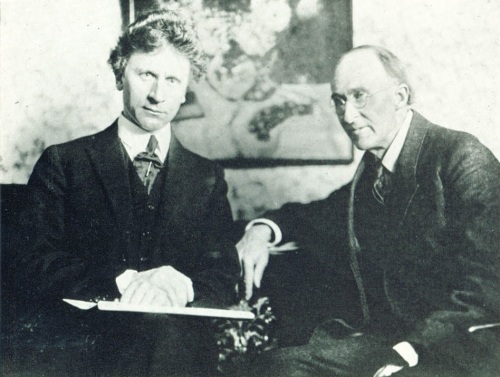Aligned with the Symbolists, Camille Mauclair considered the orchestra a transposed symbol of the emotions in nature and cited Wagner’s music as an outstanding realization of this concept.
Although he was a staunch Positivist who attacked the Symbolists, Ange-Marie Auzende described the symbolic qualities of instruments and considered the orchestra a mirror of the soul. Ernestine-André van Hasselt wrote for popular audiences, characterizing instruments as expressing or even embodying various personalities and psychological states.
In the 1894 pamphlet Anatomie et physiologie de l’orchestre, co-authored by the popular occult writer Gérard Encausee (writing under his esoteric pseudonym Papus) and the young Frederick Delius, the four instrumental groups—strings, brass, woodwinds, and percussion—were associated respectively with God, the head, and the nervous system; man, the chest, and the arterial system; woman, the chest, and the venous system; and nature, the abdomen, and the lymphatic system.
Further subdivisions and associations were outlined in preparation for a larger prescriptive work for composers that never materialized.
This according to “Sound as symbol: Fin de siècle perceptions of the orchestra” by Eric Frederick Jensen (The music review LV/3 [August 1994] pp. 227–240; RILM Abstracts of Music Literature 1996-16688).
Above, Papus in the back room of the Librairie du Merveilleux ca. 1890; below, the opening of Delius’s Appalachia from 1896, perhaps an example of his application of such theories.
Related article: F, the keynote of nature




